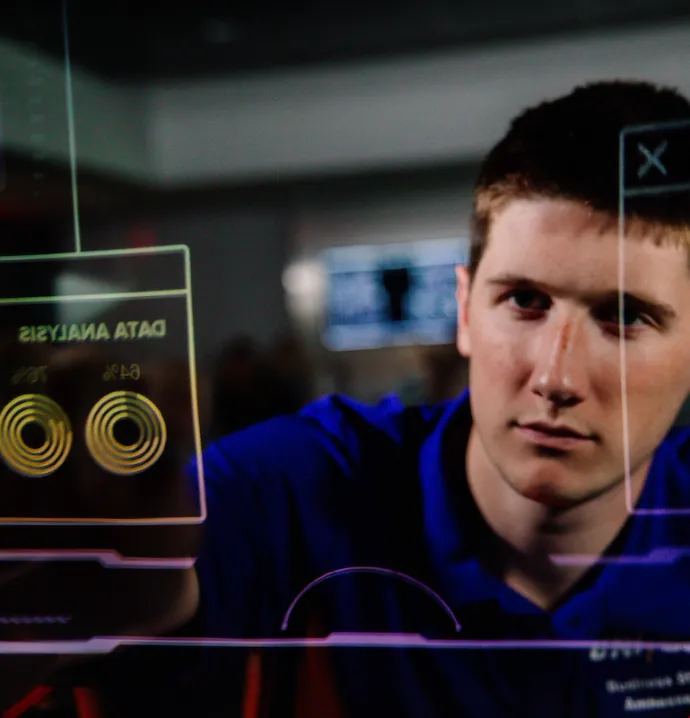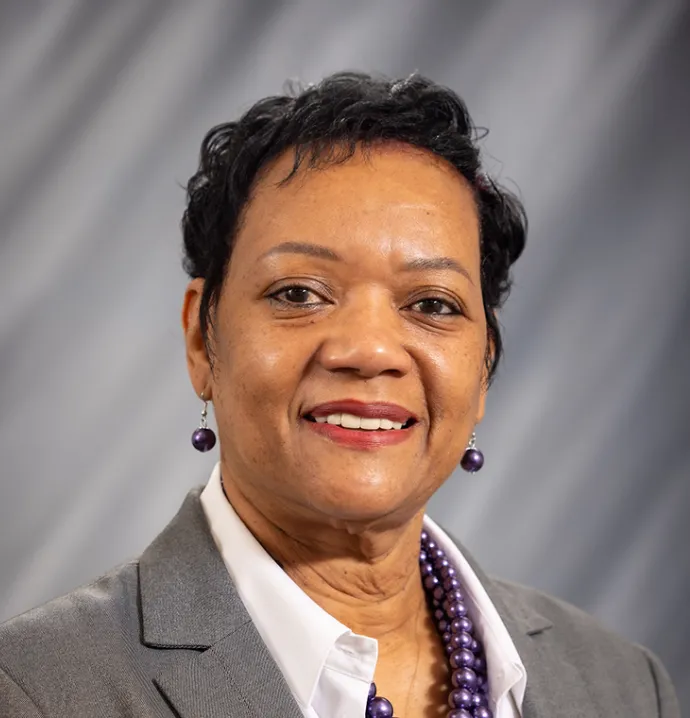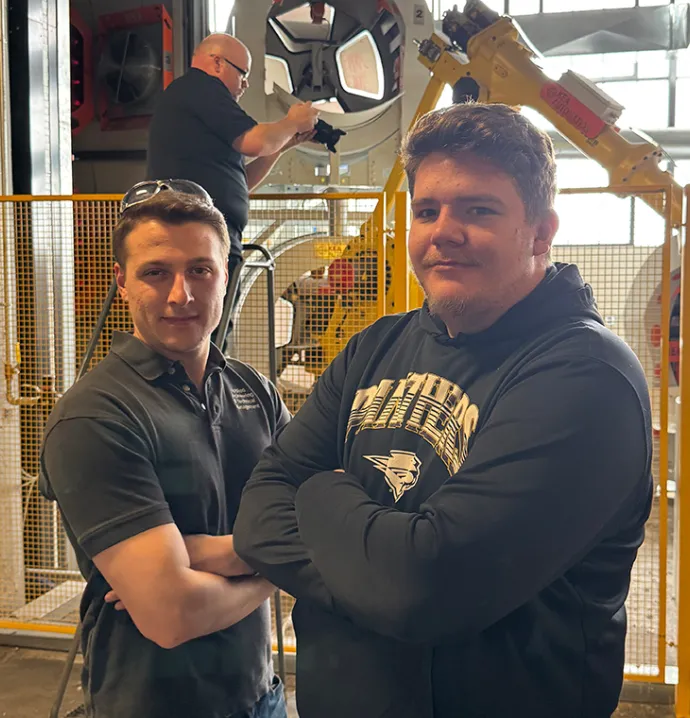PROJECT HERE challenges students to embrace their region
PROJECT HERE challenges students to embrace their region
This fall, the University of Northern Iowa is embarking on a community outreach initiative stretching across departments and involving faculty, students and staff. Known as PROJECT HERE, this program builds citizens who are dedicated to their region — in this case, Iowa — and actively involved in making it better.
“Unlike most other colleges and universities where the student body is from everywhere, UNI students are predominately from Iowa,” said Kamyar Enshayan, director of the Center for Energy & Environmental Education and co-creator of PROJECT HERE. “This idea is to help our students who mostly are from Iowa, who want to be here and live in Iowa, to pay attention to the home region and to develop an appreciation for where we are because where we are is as special as anywhere else on the planet.”
Rather than endeavoring change in just one specific area, PROJECT HERE encompasses numerous ways the UNI community can help the surrounding community. For example, PROJECT HERE will collaborate with Waverly-Shell Rock Community Schools to make more nutritious school meals and help reduce children’s exposure to pesticides in Iowa communities through Good Neighbor Iowa.
On the history and culture side, PROJECT HERE is dedicated to preserving local family snapshots through Fortepan Iowa and facilitating meaningful discussions about local history to enrich the story of a city or town. After scanning photographs for Fortepan Iowa, faculty will use the images to capture stories, create exhibits and art projects alongside K-12 students, conduct creative care exercises with people with dementia and more.
For the pilot phase, which runs during the 2023-2024 school year, 18 faculty members will be integrating PROJECT HERE in their classrooms.
For Jayme Renfro, associate professor of political science, the opportunity to participate came at just the right time. Her senior seminar class for public administration has spent the last few years completing various class projects related to redlining, the discriminatory practice of denying people financial services based on their race or ethnicity. Each time Renfro prepared for next year’s class, she found research related to redlining and tree canopies. She hadn’t looked into the research much before, but when she saw an email about PROJECT HERE and tree planting, she knew it was the right time to look into the topic for her class.
In spring 2024, Renfro’s class will produce a map of trees in Waterloo. They will compare neighborhoods that are approximately the same age to examine a possible correlation between neighborhoods with no trees and the neighborhoods that used to be redlined.
Renfro believes this is the perfect way to show her students that even policies from many years ago can still impact people today. “I want my students to see that with their own eyes, so it's not just me telling them old racism still causes modern problems,” she said.

Renfro is excited that the project will encourage students to get involved in the Waterloo community.
Read the results of PROJECT HERE
“There's so much good stuff going on in Waterloo,” said Renfro. “I want to make my students go there, put their hands in the dirt and see this community that maybe they don't have much exposure to.”
Whether students are planting trees or engaging in one of the other PROJECT HERE initiatives, the hope is that by instilling citizenship skills in students, they will continue to be committed Iowans long after they graduate from UNI.
“It requires practice just like everything else,” said Enshayan. “If you want to be a good athlete, you have to practice. If you want to be a good citizen and good resident of a region, you have to practice.”
The idea for PROJECT HERE has been taking shape for approximately eight years. Enshayan was inspired by literature, especially the works of Wendell Berry, Wes Jackson, Paul Gruchow and Scott Russell Sanders, each who have written extensively on the topic of being invested in the place you call home.
Enshayan is coordinating PROJECT HERE alongside co-creator Bettina Fabos, professor of interactive digital studies and director of Fortepan Iowa. Julianne Gassman, director of Community Engagement and professor of health, recreation and community services, has also been heavily involved in helping faculty members see how they can practically incorporate PROJECT HERE into their classes.
Another key part of PROJECT HERE is to show students they have agency in their communities. They can change things. This is why Renfro’s class will also be applying for grants to allow them to pay for and plant trees in the Waterloo neighborhoods that lack tree canopies. As Renfro points out, there are many benefits to tree canopies including better air quality and increased property values.
“Things don't have to be the way they are,” said Enshayan. “Students want to become involved. They want to see action. They're taking courses, but they want to be involved in something tangible. PROJECT HERE gives them an opportunity to do that.”




